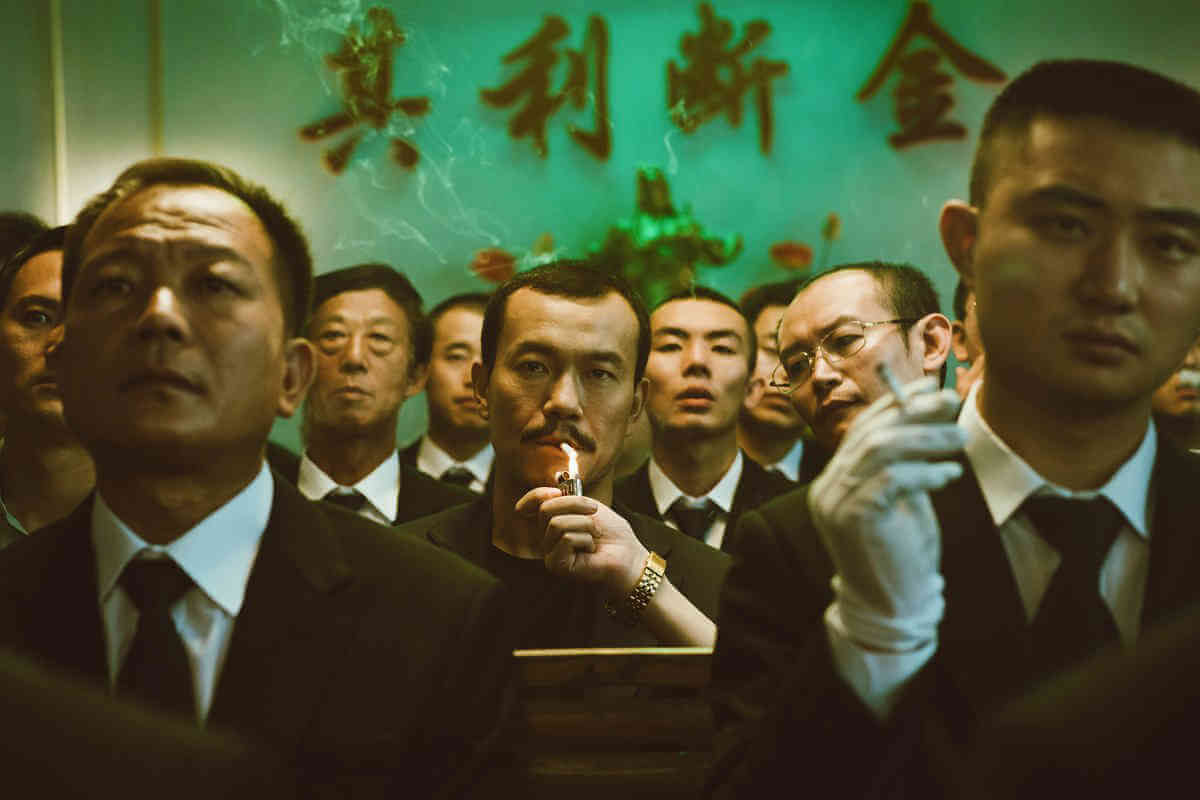Chinese director Jia Zhangke is now 48 and is in the unusual position of being the leading representative of Chinese cinema at North American and European festivals and arthouses while having found a comfortable place at home. I don’t think he wanted his image as a dissident in the eyes of Western cinephiles. His recent decisions, like starting a film festival that showcases independent cinema from around the world but vets all films through Chinese censors, show his increasing desire to work within the boundaries of mainstream acceptability. His latest film “Ash Is Purest White” is his biggest budget film so far.
It consciously revisits Jia’s past work. The film’s heroine Qiao (played by his wife and favorite actress Zhao Tao) is a composite of the heroines of “Unknown Pleasures” and “Still Life.” The first two thirds of this film are set in Datong and Fengjie, the cities where those films took place. The scene where Qiao takes a boat ride after getting out of prison is particularly reminiscent of the imagery in “Still Life.” However, that film had an exploratory quality — Jia used it to investigate high-definition video cinematography and wanted it distributed theatrically in that format when video projection was rare, rather than the norm. In “Ash Is Purest White,” the physical and social disruption caused by the flooding of the Three Gorges Dam is now part of the historical past.
Repeating the structure from his last film, “Mountains May Depart,” Jia separates “Ash Is Purest White” into three acts separated by time. In the film’s first part, set in 2001, Qiao (Zhao Tao) lives with gangster Bin (Liao Fan) in an almost all-male environment. Éric Gautier’s cinematography lights up the film with neon street scenes. Bin takes pride in living in the “jianghu” (underworld) — a concept which is central to this film — but in practice that means spending his time getting drunk with his buddies and doing petty favors for businessmen and other gangs. Qiao finally takes action at the 42-minute mark, pulling out a gun and shooting it when he gets attacked. This leads to a five-year jail sentence for possession of an illegal gun, while he gets out after one. When she leaves prison in 2006, she tries to start life over and tracks him down, but he’s moved on and she’s forced to turn to crime herself.
“Ash Is Purest White” is a melodrama, but one whose emotions build up cumulatively. For its first two thirds, the characters seem like stock figures: the long-suffering woman who sacrifices herself on behalf of a man, the gangster who eventually turns straight. Its ironies and reversals seem too easy. If they have much force, it’s due to the way Zhao’s performance reconciles stoic calm and anxiety. Bin starts out in love with his own bravado, winding up humbled and having to rely on Zhao when he once took her for granted. This may sound pat on paper, but it plays out with an unexpected complexity that both the script and Liao bring to his character.
At the end of the film, one notices that its time frame exactly matches that of the 21st century. The political becomes personal here. “Ash Is Purest White” also surveys the recent past through a constant change of video formats and references to other films, beyond Jia’s. The theme song to John Woo’s “The Killer” is played several times. (As different as his films are from Woo’s, Jia loves them and has referred to them before.)
Gautier’s cinematography sometimes looks like Christopher Doyle’s work in early Wong Kar-wai films. However, the kind of gang life often romanticized in pre-handover Hong Kong cinema is a thing of the past here. Qiao firing a gun may save Bin from having his head bashed in against his own car, but it destroys her freedom and changes the course of the rest of both their lives.
For all its genre references, “Ash Is Purest White” never lets one forget that it’s an art film. That’s both a help and a hindrance. It hints at catharsis through music or even UFO sightings, only to deny them. The pleasures of dancing to the Village People’s “Y.M.C.A.” turn to foreshadowing of the violence to come. A solid film that burns slowly but evenly, “Ash Is Purest White” doesn’t break any new ground. It’s very self-aware that it’s the latest chapter in a book that’s still being written. For better; a mature assessment of youthful emotions and experiences — and worse; a retreading of familiar themes, structures, and images rather than a desire to innovate the way Jia’s early films did. This latest feels like the work of a middle-aged artist.
ASH IS PUREST WHITE | Directed by Jia Zhangke | Cohen Media Group | In Mandarin with English subtitles | Opens Mar. 15 | Quad Cinema, 34 W. 13th St.; quadcinema.com | Film Society of Lincoln Center, 144–165 W. 65th St.; filmlinc.org



































